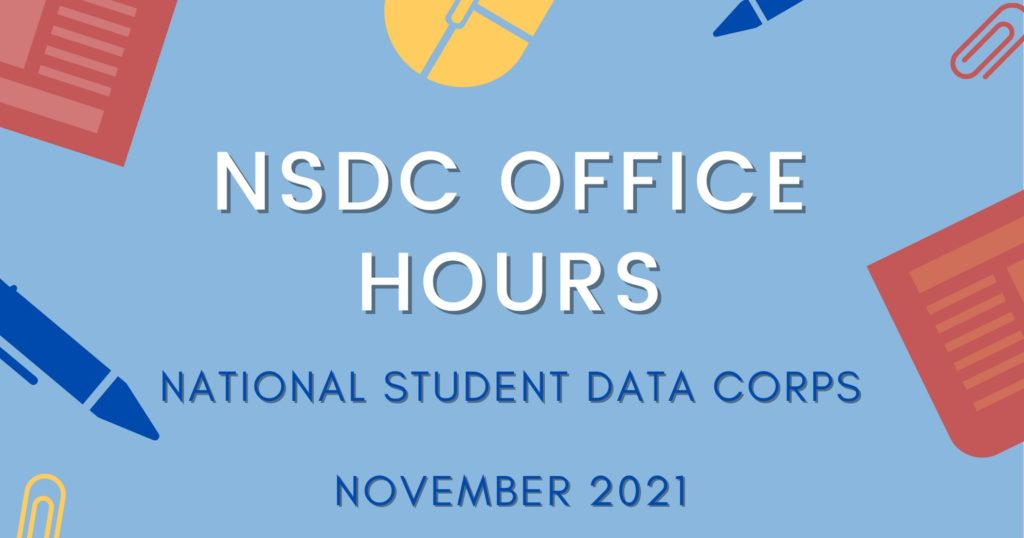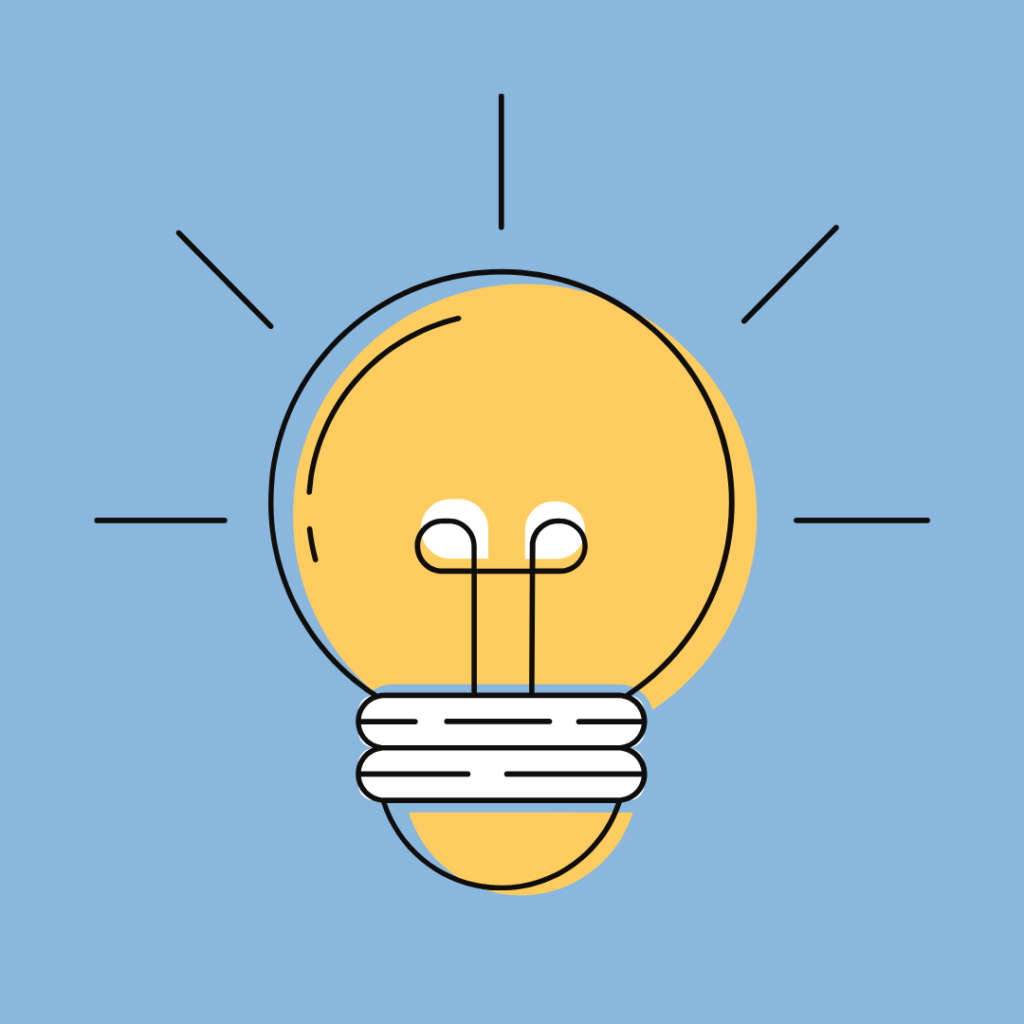
Every month, the National Student Data Corps answers a question from our community with the help of a data scientist.
To submit your data science question to the NSDC, ask our team via this Form or post it in the NSDC Slack‘s #Office-Hours channel. We may feature your query in an upcoming NSDC newsletter!
This month’s question comes to us from a student who posted on our NSDC Slack channel.

Question: I’m interested in starting a career that teaches me new skills, develops my strengths, and allows me to work for the greater social good. What are some first steps I should take to upgrade my data science skills and knowledge?
–First Steps
This month, we asked two former NSDC Career Panel speakers for their advice.
Edwood Brice is a Junior Data Scientist at Mass Mutual
Brandon Sepulvado is a Data Scientist at NORC at the University of Chicago


From Edwood Brice:
Hello!
That is an awesome question that honestly has many possible answers. I’m steadily moving towards the third year of my career in data science and my biggest learning thus far is the importance of giving yourself enough room to learn to make those first steps—and future ones—throughout your career journey. In that space, it is crucial to set reasonable goals for yourself as you pursue what you are looking for because there is a plethora of directions you could take in data science. Are you interested in fintech? Insurtech? Health and wellness? Bioinformatics? Research? It’s okay if you don’t already know!
In light of that, it helps to start somewhere; it will make your job of goal setting easier to do as you identify and target skills and strengths that you want to build. To do that, I recommend starting where you are with guided course work and readings that you could either find through your institution or MOOC platforms (e.g. edX and Coursera) that are affiliated with accredited institutions. When doing this, you can either take a dip to test the waters or dive into foundational content that touches on the various facets of data science. From this perspective, you could set formative goals that help you get through content e.g. a unit a week. And afterwards, you could set up sessions for yourself to reflect. “Did what I just learn resonate with me?” and “Can I see myself doing work like this for my career?” are good questions to spark some thought.
As you continue to do this, you will find that you will inevitably wind up somewhere that empowers you to keep learning to reach your goal of landing a career that fits you. At the same time, the insight from this journey will make opportunities that make sense for your prospective career apparent. But your journey should not be in a vacuum; if you can, definitely make friends and get to know your instructors along the way. The conversations and mentorship you will encounter through them will cultivate and uncover some of the most impactful lessons that will inform your decisions and directions moving forward.
Lastly, having a career with the capacity to render social good is definitely possible in data science! Identifying the ways I could do that in my own career required me to identify what I was passionate about beyond the threshold of my day to day work. To do that, I went to every conference, talk, and event that I could to get a sense of what I could do to help make an impact in pre-existing work or in an unaddressed gap. Some of the conferences and organizations that helped to shape my understanding of how social good can manifest in data science are: AfroTech, ACM FAccT, Responsible Tech Summit, Lesbians Who Tech & Allies, and Data for Black Lives. No matter where you decide to go, be sure to ask questions and go beyond what is shared. Set goals to read the associated papers. Also, follow up and learn about the speakers if you can.
Ultimately, as I said at the start, you need to make room for yourself. Your journey will have as many steps as you allow. I hope each one is fruitful in your pursuit to broaden your skills and knowledge to start a data science career!
– Edwood Brice (https://www.linkedin.com/in/edwoodbrice/)
From Brandon Sepulvado:
Hi!
Because data science is such a broad field, I would start by thinking about the type(s) of social impact that you want to have. As a few examples, would you like to work directly for a government; are you interested in building a social media ecosystem that supports users’ wellbeing or empowers marginalized communities; are certain domains, e.g., education, particularly compelling to you; would you like to build solutions to help navigate the climate crisis?
Once you have identified how you would like to have social impact, find examples of organizations and/or companies doing work that interests you, and identify the skills required for such work. Doing so will help you gather critical pieces of information, such as programming languages, methods, and even common data sources used within your domain of interest. Then, I’d recommend undertaking a project in which you use the new skill(s); although you might need to start with a guided introduction, the goal of the project is to get you to a point where you have some level of independence with the new method, language, etc. There are high quality free online tutorials and examples for most areas of data science, and you should not hesitate to use online forums and social media for help. Finally, I recommend Build a Career in Data Science by Emily Robinson and Jacqueline Nolis.
Motivating your professional development process with the type of societal impact you want to have will ensure that you acquire skills to meaningfully advance your career and potentially gain knowledge of where and with whom you want to put your new skills to use.
– Brandon Sepulvado (https://www.linkedin.com/in/brandonsepulvado/)

